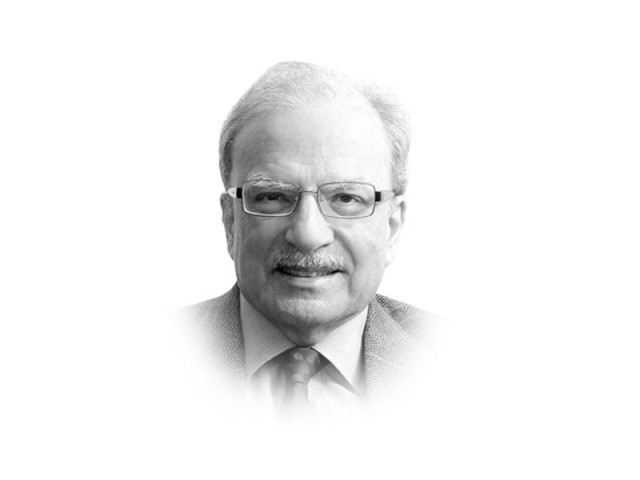Why China should turn to Pakistan
The large investment planned by China in Pakistan also serves to maintain country’s faltering rate of economic growth

The writer is a former caretaker finance minister and served as vice-president at the World Bank
The world has changed since then. The Soviet Union has collapsed, the spread of Communism is no longer a threat, and al-Qaeda is no longer a powerful presence in the AfPak region. America took its revenge and Osama bin Laden, the main sponsor of the 9/11 attacks, was killed in 2011. The Islamic State in Iraq and Syria (possibly spreading to Libya) could threaten America. It may get involved in beating it back in these countries. In this new geo-political situation, Pakistan is no longer of much strategic significance for the United States. In these altered circumstances, it makes sense for Islamabad to look at China as a source of external finance and Beijing is willing to oblige. During the April visit of China’s President Xi Jinping to Islamabad, Pakistan was promised $46 billion equivalent of capital, most of it in the form of project assistance.
Nations forge relations seldom for sentimental reasons. They do so for strategic reasons. Notwithstanding the hyperbolic pronouncements of the leaders of China and Pakistan about the nature of their relations – they have called these higher than the highest mountains, deeper than the deepest ocean – the two countries have strictly followed their interests. Pakistan’s reasons for drawing close to China are less complex than those of China. For Islamabad, transfer of defense technology acquired considerable importance after it was subjected to repeated sanctions by the United States. According to the detailed account provided by Feroz Hasan Khan in his book Eating Grass, it is clear that China’s help was critical for the deavlopment of nuclear weapons by Pakistan. The need for capital has been added as the motivating factor. Some analysts have suggested that the attempt to balance India’s growing military might may be the third reason for Pakistan to get close to China. However, China was of no particular help during Pakistan’s two recent wars with India, one in 1965 and the second in 1971. It is unlikely that Beijing will intervene if for some reason there is another conflict involving India and Pakistan.
China has begun to look to Pakistan as an important player in its strategy to create space for itself in the region around its borders. Using its growing economic strength, China is spending more than ever on its military. Gwadar could become an important staging area for its rapidly expanding and modernizing submarine fleet. The reason for giving the navy so much attention is to protect some of the sea-lanes critical to Chinese trade. The narrow Strait of Malacca through which nearly all of its commerce passes, is of great importance as it could easily be blocked during a period of hostility. A strong naval presence in these oceans will serve as deterrence.
The proposed China-Pakistan Economic Corridor (CPEC), will connect the port of Gwadar with the western provinces of China, a land-locked country, through road, rail and fiber-optic links. Some of the trade that passes through Malacca could use the CPEC as an alternative route. China is looking also at the rich energy and mineral resources available to be exploited in Central Asia. A United States investigation in 2010 estimated that Afghanistan was sitting atop mineral wealth valued at $1 trillion. Some of these mineral veins spread into Pakistan’s Balochistan province. The CPEC could be used to transport these minerals as well as oil and gas.
The large investment planned by China in Pakistan also serves to maintain the country’s faltering rate of economic growth. For the last 35 years, the Chines economy increased at the rate of about 10 percent a year. It is now 32 times larger in size than in 1979 when the economy was opened and the period of high growth began. That expansion was made possible by the export of cheap manufactures to western markets. But cheap labor is no longer available and the markets in the West are saturated. Investment in the domestic economy has worked to some extent but even that is getting exhausted. Foreign investment, therefore, becomes an attractive option and Pakistan provides an opportunity for this.
Published in The Express Tribune, June 15th, 2015.
Like Opinion & Editorial on Facebook, follow @ETOpEd on Twitter to receive all updates on all our daily pieces.















COMMENTS
Comments are moderated and generally will be posted if they are on-topic and not abusive.
For more information, please see our Comments FAQ